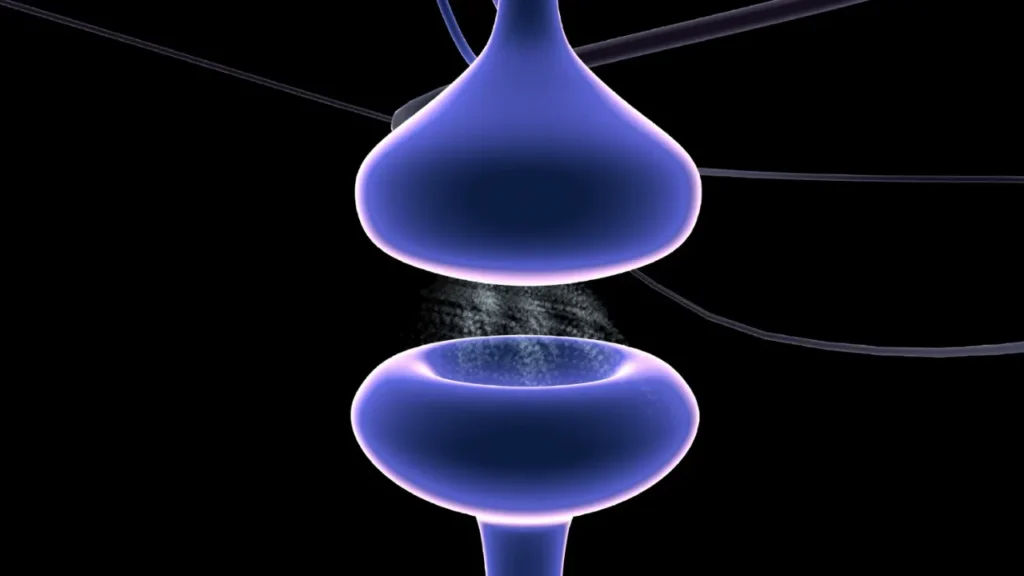Scientifically named Symplocarpus foetidus, skunk cabbage is a perennial wetland plant that can be found in North America and is distinguished by its strong, early-spring growth. The distinct properties of this plant, especially in terms of improving alertness, focus, and cognition, have drawn the attention of both modern researchers and practitioners of traditional medicine. In order to ensure responsible use of skunk cabbage as a nootropic supplement, this article explores its nature, health advantages, ideal dosage, side effects, possible substance interactions, and other pertinent factors.
You May Also Like:
Diamond CBD Gummies vs. Joy Organics CBD Gummies
Sunmed CBD vs. Partnered Process CBD: Finding the Best CBD for Sleep
Skunk Cabbage: Benefits, Dosage, Side Effects, Drug Interactions, and Other Important Information is an original (NootropicsPlanet) article.
Nature of Skunk Cabbage
In late winter or early spring, skunk cabbage appears during times it snows. It is one of the first plants to bloom in the year because of its ability to produce heat, which allows it to melt the snow around it. The cyanide-resistant respiration process, a special metabolic system that enables the plant to burn sugars at a rapid pace and produce heat, is responsible for this thermogenic property. The peculiar perfume of the plant, which is similar to skunk stench, draws pollinators like bees and flies.
Health Benefits
While comprehensive clinical studies are lacking, traditional uses and preliminary research suggest several potential health benefits of skunk cabbage, especially related to cognitive enhancement and respiratory health.
- Cognitive Enhancement: The interaction of skunk cabbage compounds with the CNS and their potential to improve neurotransmission can be beneficial for enhancing cognitive functions. This includes improved memory, concentration, and the ability to focus, making it a subject of interest for use as a nootropic supplement.
- Respiratory Health: Skunk cabbage has a long history of use in traditional medicine for treating respiratory conditions. Its expectorant properties help in loosening phlegm and mucus, facilitating easier breathing in conditions like asthma, bronchitis, and whooping cough. The isothiocyanates can contribute to this effect by reducing inflammation in the airways, thus improving respiratory function.
- Anti-inflammatory and Analgesic Effects: The anti-inflammatory properties of skunk cabbage can be attributed to its isothiocyanates and phenolic compounds. These substances can help reduce inflammation throughout the body, offering relief from conditions like arthritis and other inflammatory diseases. Additionally, skunk cabbage has been used traditionally to relieve pain, suggesting analgesic properties that could be explored further in scientific research.
- Antioxidant Protection: The antioxidant properties of skunk cabbage suggests it could protect against oxidative stress and reduce the risk of chronic diseases, including neuro-degenerative disorders. By neutralizing free radicals, skunk cabbage can help maintain cellular health and prevent the damage that leads to cognitive decline.

Chemistry of Skunk Cabbage
Skunk cabbage (symplocarpus foetidus) has an intricate and intriguing chemistry that includes a wide range of substances that give it its unique abilities and medicinal benefits. Knowing the chemical makeup of skunk cabbage will help you understand its possible health advantages and uses in both conventional and alternative medicine. This mixture of volatile molecules, alkaloids, glycosides, and other phytochemicals has the potential to have medicinal effects and is involved in the way the plant interacts with its surroundings.
Volatile Organic Compounds (VOCs)
Skunk cabbage has a pungent smell that is similar to rotting meat or garlic, mostly due to its volatile chemical components. Among these volatile organic molecules are isothiocyanates, which are sulfur-containing substances with an overpowering odor. Because of their noteworthy antibacterial and anti-inflammatory properties, isothiocyanates are interesting for application in medicine. They contribute to the plant’s ability to treat specific ailments by preventing microbial development and lowering inflammatory responses in the body.
Alkaloids
Skunk cabbage contains nitrogen-containing substances called alkaloids, which have a variety of biological functions. These substances can interact with the central nervous system, changing mood, perception of pain, and neurotransmitter activity. Research on the precise structures and methods of action of the alkaloids present in skunk cabbage is still ongoing, but their existence implies that they can have nootropic and analgesic properties.
Phenolic Compounds
Phenolic compounds in skunk cabbage, such as flavonoids and tannins, are known for their antioxidant properties. These compounds can neutralize free radicals, preventing oxidative damage to cells and tissues. Oxidative stress is associated with numerous health issues, including chronic inflammation, cardiovascular disease, and neuro-degenerative disorders. The antioxidant properties of phenolic compounds in skunk cabbage can therefore offer protective benefits against these conditions.
Glycosides
Glycosides are compounds in which a sugar part is bound to a non-sugar part, known as the aglycone. In skunk cabbage, glycosides can contribute to its medicinal properties, including its effects on respiratory health. Some glycosides have been found to possess expectorant properties, helping to clear mucus from the respiratory tract. This action makes skunk cabbage a traditional remedy for coughs, bronchitis, and other respiratory ailments.
Calcium Oxalate
An important component to consider is calcium oxalate, found in the form of crystals within skunk cabbage. These crystals can cause irritation if the plant is handled or ingested improperly, leading to symptoms such as itching, burning, and swelling. The presence of calcium oxalate underscores the importance of cautious handling and preparation when using skunk cabbage for medicinal purposes.
The intricacy of natural substances and their possible health advantages are demonstrated by the chemistry of skunk cabbage. The plant’s volatile compounds give it its distinct smell and antibacterial properties, but its alkaloids, phenolics, and glycosides have a variety of medicinal benefits as well, including antioxidant and anti-inflammatory effects as well as potential enhancements to respiratory and cognitive health. It will be easier to understand the whole range of skunk cabbage’s therapeutic uses and safe use techniques with additional research into these chemicals.
Physiological Properties of Skunk Cabbage
Skunk cabbage has a wide range of bio-active chemicals, such as glycosides, alkaloids, phenolic compounds, and isothiocyanates, which are mainly responsible for its physiological effects. These chemicals have intricate interactions with the body that affect a number of physiological and biochemical pathways.
Owing to their antibacterial and anti-inflammatory properties, isothiocyanates have the potential to modify the immunological response by preventing the activation of NF-kB, a protein complex that is essential for controlling the immune response to infection. This function may lessen inflammation and offer disease protection.
Strong antioxidant qualities found in phenolic compounds in skunk cabbage help to scavenge free radicals and shield cells from oxidative stress. Given that oxidative stress is connected to a number of long-term illnesses, such as neurological diseases, skunk cabbage can offer protection for the health of the brain.
Skunk cabbage’s alkaloids can influence the central nervous system (CNS) by interacting with neurotransmitter receptors, boosting neurotransmission, and strengthening mental abilities including alertness, focus, and memory. These interactions contribute to the regulation of neurotransmitter levels, which can affect mood, anxiety, and mental clarity.

Optimal Dosage
It is difficult to determine the ideal dosage of skunk cabbage for nootropic benefits because there is not enough scientific research available. Anecdotal evidence and customary usage patterns might offer some insight, but these suggestions need to be used cautiously. Before adding skunk cabbage to your routine, you should speak with a healthcare provider because of its strong chemical contents and potential for toxicity at greater dosages.
Side Effects
Although skunk cabbage is used in traditional medicine, overconsumption can lead to negative effects. Calcium oxalate crystals found in the plant’s uncooked portions can irritate the skin, mouth, and throat. If consumed in large amounts, this can cause pain and possibly more severe reactions. The risk of side effects can be reduced by following suggested dosages properly.

Potential Substance Interactions
Certain drugs and supplements, especially those that impact the central nervous system, can interact with skunk cabbage. Its alkaloids, for example, can affect how neurological drugs are metabolized and change how effective they are. If you are on any kind of medicine, you should speak with your doctor before using skunk cabbage supplements.
Best Responsible Use
As a nootropic substance, skunk cabbage has fascinating potential for improving cognitive abilities like alertness, focus, and cognition. Caution is suggested, nevertheless, considering the paucity of accessible scientific evidence. In order to prevent negative effects and interactions, interested parties should place a high priority on safety, speak with medical specialists before using, and completely follow established instructions.
Skunk Cabbage:
Conclusion
The potential health benefits of skunk cabbage, particularly for cognitive enhancement and respiratory health, highlight the need for more scientific research to fully understand its benefits and properties, and to establish safe, effective dosages. Given its potent compounds and the possibility of side effects, skunk cabbage should be used cautiously and under the guidance of healthcare professionals. This careful approach ensures that you can safely explore the potential benefits of skunk cabbage as part of a holistic health strategy.

References:
1. Side Effects of Skunk Cabbage:
Holdrege, Craig. “Skunk Cabbage.” The Nature Institute. In Context#4 (Fall, 2000)
2.Skunk Cabbage: Overview, Uses, Side Effects, Precautions, Interactions, Dosing and Reviews.” Vitamins & Supplements. Skunk cabbage. Retrieved from: https://www.rxlist.com/supplements/skunk_cabbage.htm
3. Respiratory Benefits of Skunk Cabbage: https://www.rxlist.com/supplements/skunk_cabbage.htm
Seymour, Roger S., et al. “Respiration of thermogenic inflorescences of skunk cabbage in heliox.” Plant, Cell & Environment, vol. 41, no. 4, 2018, pp. 837-846Wiley Online Library, doi:10.1111/pce.13097 . Retrirevied from: https://onlinelibrary.wiley.com/doi/full/10.1111/pce.13097.
Important Note: The information contained in this article is for general informational purposes only, and should not be construed as health or medical advice, nor is it intended to diagnose, prevent, treat, or cure any disease or health condition. Before embarking on any diet, fitness regimen, or program of nutritional supplementation, it is advisable to consult your healthcare professional in order to determine its safety and probable efficacy in terms of your individual state of health.
Regarding Nutritional Supplements Or Other Non-Prescription Health Products: If any nutritional supplements or other non-prescription health products are mentioned in the foregoing article, any claims or statements made about them have not been evaluated by the U.S. Food and Drug Administration, and such nutritional supplements or other health products are not intended to diagnose, treat, cure, or prevent any disease.


